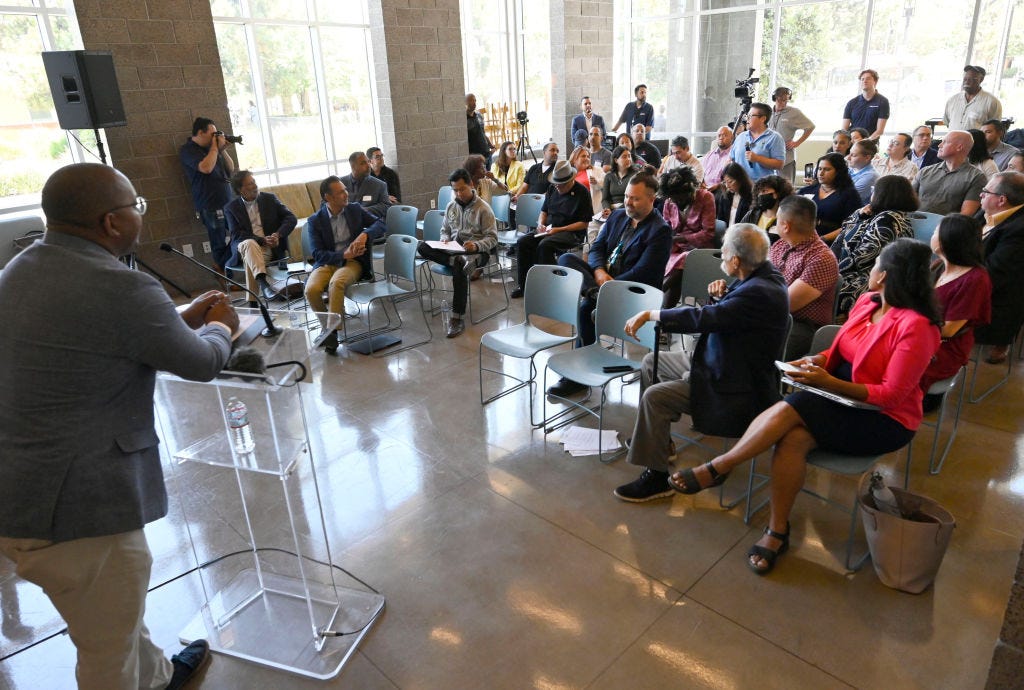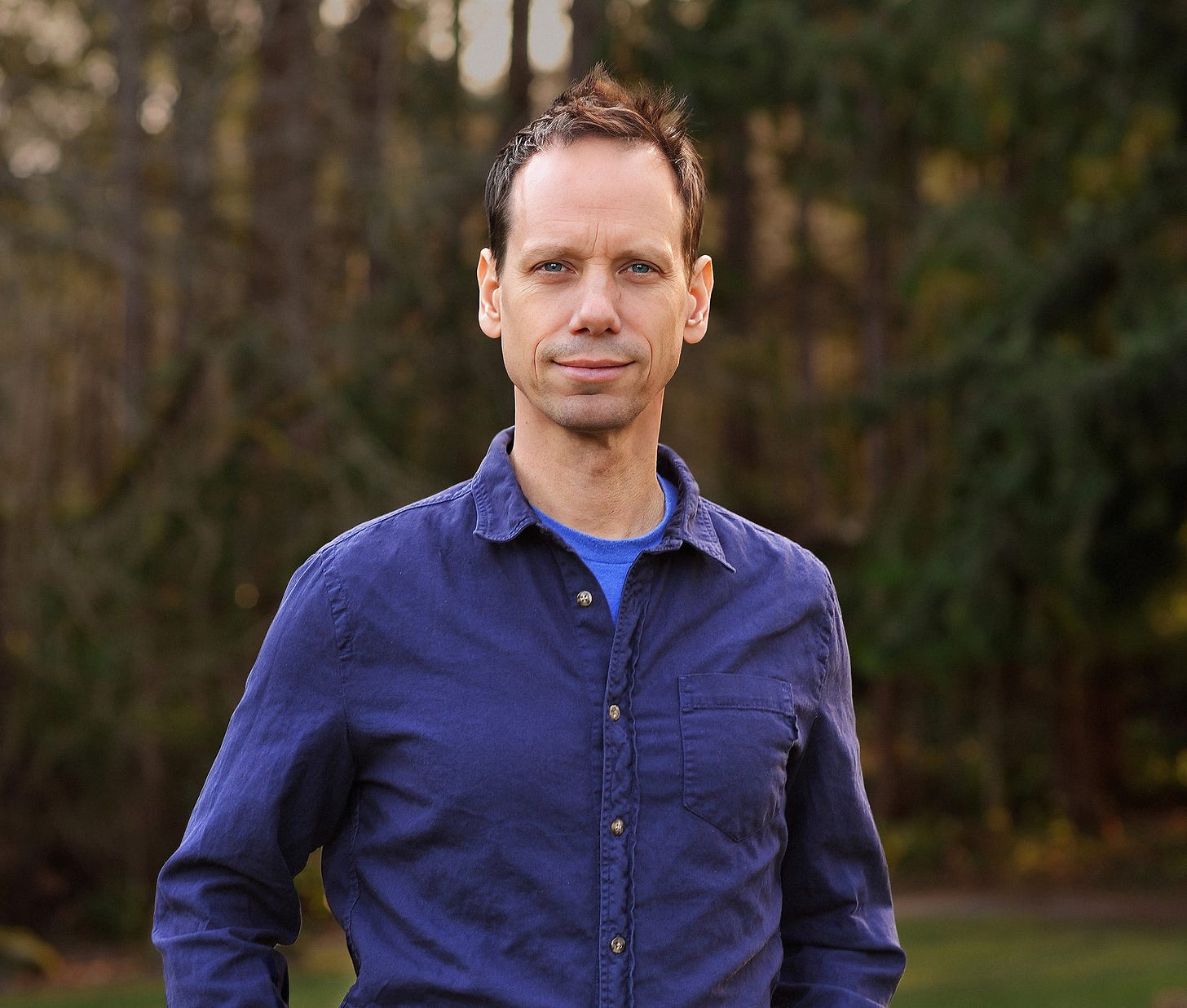GET BUSY: Learn the fundamentals of organizing from George Goehl
The veteran organizer has written a new book offering citizens the best practices in fighting for change in their communities
What annoys you? Please don’t answer your spouse or your kids or your friend Denise. That is beyond the scope of this newsletter.
But if there is something in your community that annoys (or angers or terrifies) you, or something in your state, or something in your country — and if there isn’t, we want to know what you eat for breakfast — the first step toward changing it is organizing.
Organizing is rallying your fellow citizens around a common cause so they can actually change those annoying things. It often means educating people about an issue they may not have thought a ton about. It tends to require getting people to care about something when they already have a million other things going on. It takes assembling enough people into some kind of collective so that their voices, in concert, cannot be ignored the way individual cries can be.
Organizing is different from (but intersects with) much activism, because the former is more interested in building long-term, trust-based relationships with community members rather than seizing attention and creating a moment. It is different from (but intersects with) electoral campaigning, because, at its best, organizing isn’t about asking people to do one thing in the short term (vote, or donate); it’s about walking with people as they try to figure out the world, and nurturing their political awareness.
When I wrote my book The Persuaders, I devoted much of the last chapter to the work of one of the country’s great sages of organizing, George Goehl. He’s a veteran organizer, a major figure in the essential work of deep canvassing, and a dedicated teacher of organizers and developer of organizing efforts across the country.
This week, he’s released a short book, Fundamentals of Community Organizing, that collects what he’s learned over the thirty years he’s been involved in turning demands into action to make real change. That experience is condensed into a series of principles meant to get you started in the craft of organizing.
If this sounds inspiring and you want to learn more about the essential craft of organizing, we encourage you to pick up a copy of the book. And if you’re ready to get more involved, get on the list to attend a Fundamentals of Organizing training so Goehl and his team can let you know about upcoming events in your area.
And today, below, in the latest installment of GET BUSY, The Ink’s series on practical actions you can take to improve democracy, we have some tips from George himself.
By George Goehl
We preserve and strengthen democracy not through worrying about it, or by going it alone as so many of us are taught, but by practicing it. The uniquely American form of doing this is community organizing, a methodology that has been used for generations to bring people together, build power, fight back, and often win.
Organizing is a craft. Like with any craft, there are fundamental skills and concepts you need to know to do the thing well. I wrote this little book (it’s 50 pages), Fundamentals of Community Organizing, to spell out a few dozen fundamentals that have helped me bring people together, go toe-to-toe with some of the biggest bullies in the world, and win. These principles have the power to change lives, including your own. I hope you get a copy and join the conversation we are having here.
And now, a preview of the book and a few of the “fundamentals” I share, including “Start where people are at,” “All organizing is reorganizing,” and “Cutting an issue”:
Start where people are at
Starting where people are is the most essential organizer’s superpower. It is not in our nature to do this. We tend to start where we are — with what we want and what we believe. When we instead meet people where they are, new openings emerge, expanding who we can organize and make meaning with.






